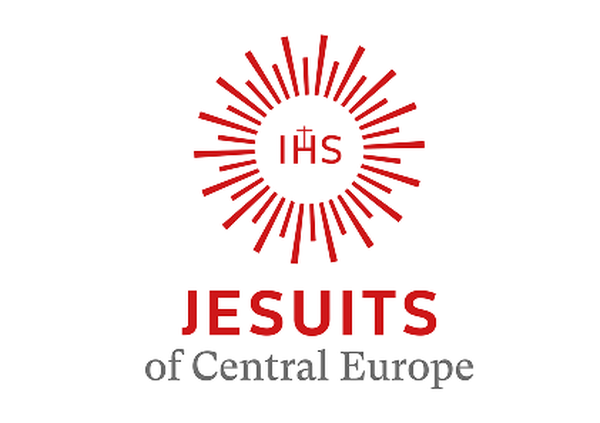About Us
Learning together as a global community, acting for peace and human dignity
In a fragmented and vulnerable world, JWL delivers quality higher education to excluded youth and serves as a global platform where universities and students come together in solidarity and service to marginalised communities. In collaboration with mission-aligned partners, JWL creates inspiring solutions for peace, grounded in hope, human dignity, and freedom of the heart.
What
JWL offers quality university education to youth in excluded communities and crisis-affected regions to form leaders who create just, peaceful and sustainable solutions.
Why
Higher education empowers marginalised communities to break the cycle of poverty, gain confidence, and become self-reliant. Students become community-focused leaders who work together to share knowledge, resolve conflicts, and protect the environment. Through education, they promote lasting peace, and social and ecological justice, helping to build stronger, more inclusive communities.
How
JWL collaborates with universities to offer accredited programmes in cooperation with community learning centres. We leverage technology through our unique learning platform and an innovative model of blended learning.
Where
Jesuit Worldwide Learning engages in crisis-affected regions with the forcibly displaced (refugees, IDPs), Indigenous and other excluded and oppressed communities (socioeconomic, religious, political, cultural, gender), including those with physical disabilities.

"Those who have lived through war – they want to know how to contribute to peace. This is their message: That peace is possible. Peace in their communities – peace in their hearts first of all.
The dream of free thinking, of human freedom, and peace in human society is alive, and even stronger in many of these communities at the margins.
Excluded people face many of today's challenges of humanity: conflicts and forced displacement, poverty, low-quality or no education, environmental degradation, authoritarian regimes, discrimination against women and religious and ethnic minorities.
JWL offers higher education to these communities to support them in finding solutions."
Peter Balleis SJ, JWL Executive President

Higher education provides durable solutions for refugees and migrants in their countries of origin, host countries, or in third countries (resettlement), fostering self-reliance and integration.
Peace studies address root causes of conflict to rebuild peaceful, culturally diverse and just communities through interreligious cooperation and promoting human rights and democracy.
Spaces for intercultural dialogue to overcome religious and cultural fundamentalism and foster open thinking and tolerance.

Promoting inclusive, high quality education through student-centred teacher training and transformative intercultural education.
Beyond knowledge and practical skills, education provides excluded young women with hope and enables them to lead and serve as role models for other women and girls.
Implementation of technological solutions to include learners with physical disabilities.
Caring for our common home through an integral training for the Sustainable Development Goals and addressing the root causes of the crisis.
With relevant education, Indigenous youth can address multiple threats faced by their communities, ranging from environmental destruction through to cultural erosion and denial of their human rights.
English language skills open up pathways to professional and higher education opportunities, as well as facilitate participation in global platforms.
Learners gain in-demand technical and interpersonal skills to find and/or create employment opportunities for themselves and others in their communities.
Intercultural dialogue and education in the field of human rights promotes democracy and the respect of economic, social, cultural, civil and political rights.
In the face of disinformation, coupled with misuse of technology, the development of critical thinking skills is crucial for learners to engage in the world in a thoughtful and responsible way.
Quality education forms servant leaders who promote social and ecological justice, prosperity, and peace. Learners are encouraged to engage in community service as part of their studies.
Education which develops compassion, character and competence nurtures leaders who act with a sense of collective purpose.
In 2007, Jesuit universities met at Regis University in Denver to explore how to serve marginalised and displaced youth. The Australian Catholic University shared its blended learning initiative with refugees on the Thai-Myanmar border, inspiring the formation of Jesuit Commons: Higher Education at the Margins (JC:HEM). Regis University contributed its online learning expertise, and the Jesuit Refugee Service became the field partner. The pilot programme launched a liberal studies foundational programme in three sites: Kakuma Refugee Camp (Kenya), Dzaleka Refugee Camp (Malawi), and in Aleppo (Syria).
JC:HEM decided from the very beginning to use a blended online learning approach, instead of the emerging MOOCs (Massive Open Online Courses) model. This approach was deemed crucial to implement two key components of the Ignatian educational philosophy: companionship and guidance, and to adapt the Ignatian model to students in refugee camps and other marginalised settings. Companionship and guidance are promoted through community learning centres, where students are accompanied by a local facilitator and work in groups, but are also integrated at a global level, with international online faculty teaching the courses and promoting discussion and reflection in the global virtual classroom.
In 2016, after the evaluation of the pilot round, Jesuit Worldwide Learning was founded as a work of the Central European Province of the Jesuits with its Headquarters in Geneva, Switzerland. JWL expanded it's academic offer and geographic reach and today serves marginalised youth in over 35 countries.

A work of the Central European Jesuit Province (ECE), Jesuit Worldwide Learning draws on 470 years of the Jesuit education tradition (an integral formation of the head, heart and hands) in service of the poor and excluded.

The 4 Jesuit Universal Apostolic Preferences provide a point of reference for the whole Society of Jesus, inspiring and guiding us in our current and future activities.

Our programmes promote a global conscience of care for our common home – and in so doing also contribute to the achievement of the Sustainable Development Goals.











